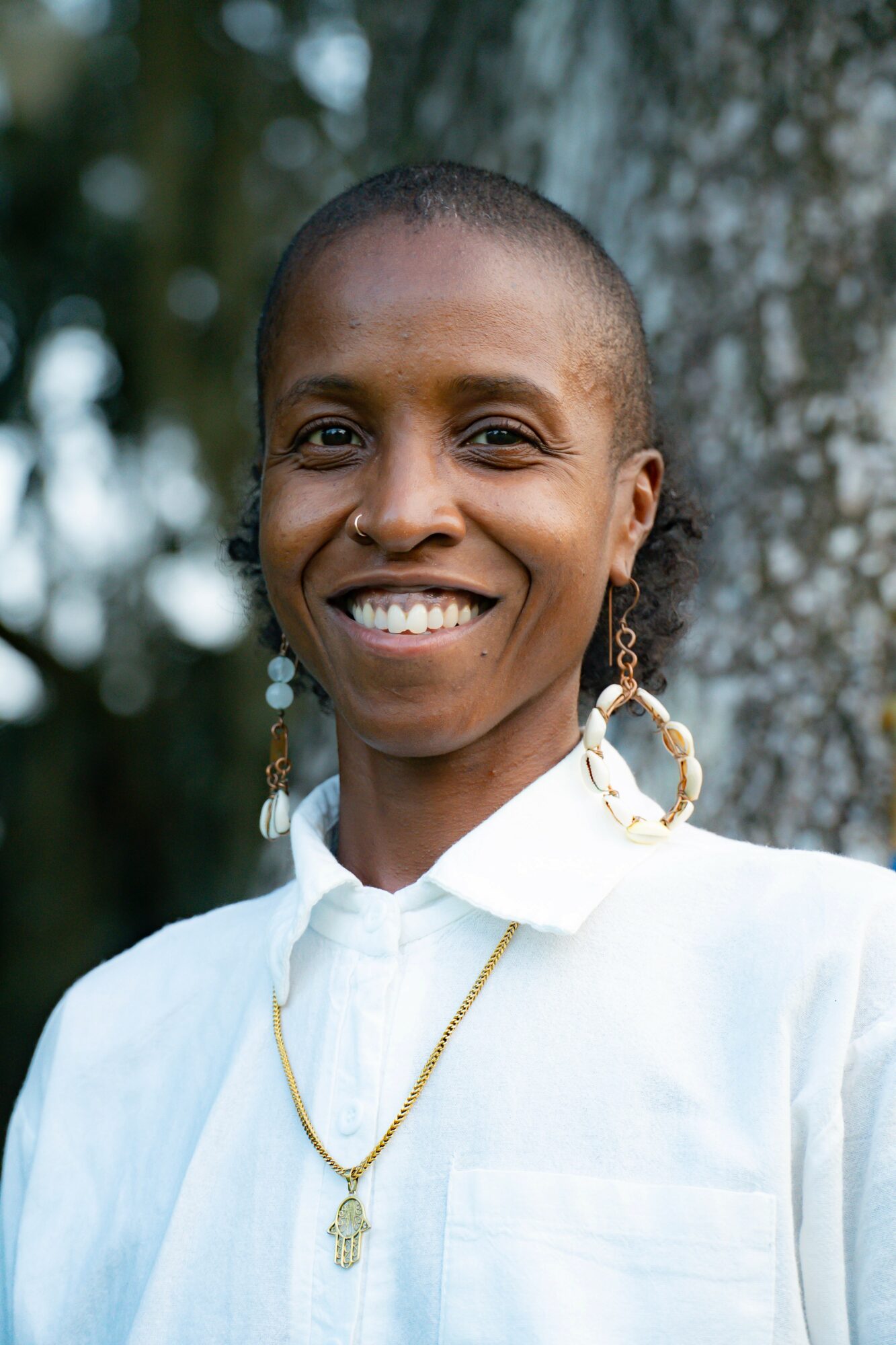

We’re looking forward to introducing you to Fatima Mann. Check out our conversation below.
Fatima, a huge thanks to you for investing the time to share your wisdom with those who are seeking it. We think it’s so important for us to share stories with our neighbors, friends and community because knowledge multiples when we share with each other. Let’s jump in: What are you being called to do now, that you may have been afraid of before?
I am being called to finally embrace my long-held dream of becoming a Sports and Entertainment Attorney. This means stepping fully into the legal arena to represent the authors, creatives, genius facilitators, and healers who align with my skills and values.
For the last decade, my life has been centered on service through a humanitarian lens, guided by Buddhist, Yogic, and African spiritual principles. I lived by the faith that everything would work out in my favor, which allowed me to serve with compassion and love, without a primary focus on financial return. But in that process, I let my own dream fade into the background.
After law school, I returned to community organizing, creating the spaces I wanted to see. That path, compounded by my fear of not belonging in the legal profession—because I don’t wear shoes, because of limited funds, and through seasons of profound grief—caused me to forget the calling I first felt at eighteen after reading William C. Rhoden’s Forty Million Dollar Slaves. That book ignited a fire in me to change how Black and Brown athletes and entertainers are engaged with by a industry that profits billions on their backs.
Now, after my season of grief, I am remembering that dream with clarity. I am being called to bring conscious, human-centered, and mindful decision-making to professional athletes, entertainers, and their families. The fears that once held me back have lost their power. I am no longer afraid of being seen as the unconventional lawyer, without shoes, who doesn’t fit the archetype. I am no longer afraid of what the world thinks or caught up in proving my worth.
I am now in a space where I am ready to utilize all of my skills, talents, and wisdom to help others in this new capacity. I am being called to overcome that fear, embrace my dreams, and honor the destiny I set for myself so long ago.
Can you briefly introduce yourself and share what makes you or your brand unique?
My name is Fatima Mann, J.D., and my work exists at the vital intersection of legacy and soul. I am a legal professional, a systems architect, and a guide for those who dare to believe that generational wealth and profound humanity are not mutually exclusive pursuits, but two sides of the same coin.
For the past decade, my path has been one of deep integration. With a law degree in one hand and a background in trauma-conscious yoga and healing-centered practices in the other, I have served as a community organizer, keynote speaker, and retreat facilitator. I co-founded a venture dedicated to a radical idea: that we can do great work without causing harm to ourselves or others. This philosophy was honed through my own decade-long journey of unlearning harmful practices, a process that taught me to lead with compassion, grace, and patience—for myself first, and then for the world.
The last two years, living nomadically out of four bags and traveling beyond U.S. borders, have been a masterclass in the human condition. I’ve witnessed a universal truth: no matter the language or latitude, love is the fundamental currency of connection. I’ve seen people connect in ways utterly divorced from transaction, reminding me that at our core, we all simply need to be seen—in our grief, our joy, and our unvarnished humanity. This experience solidified my purpose: to meet people where they are in a world that systematically strips away their humanity.
Now, I am channeling this entire tapestry of experience into building Love and Healing Work. We are evolving from a practice into a full-spectrum agency, but our north star remains unchanged. We represent and support brilliant creators, facilitators, and healers—particularly in sports and entertainment—by providing them with regulated, holistic, and culturally mindful representation.
What makes this unique is the foundation. We are not just building careers; we are co-creating sustainable ecosystems. We assist our clients in building the lives, infrastructures, and policies that allow them to be “booked, busy, and balanced.” We are creating a new paradigm where making the money needed for generational wealth does not require the sacrifice of one’s soul. Instead, we use mindful, human-centered systems to ensure that success is not just profitable, but also purposeful, sustainable, and transformative.
Ultimately, my brand is built on a lived truth I carry with me everywhere: that love is all there is, faith is a choice, and the words we speak can—and will—become our lived experience. I am here to help speak a new reality into being for those ready to claim it.
Great, so let’s dive into your journey a bit more. What breaks the bonds between people—and what restores them?
At the heart of so much of our modern disquiet lies a simple, aching truth: we have forgotten how to be in right relationship, not only with each other but with ourselves. The bonds that tether us—in love, in community, in collaboration—fray and snap not merely from the occurrence of harm, but from our collective inability to navigate its aftermath. Harm, in itself, is an almost inevitable human experience. The true rupture occurs in the absence of a process to harmonize the relationship, leaving a chasm of unacknowledged pain and unresolved energy.
What breaks the bond is the silent aftermath. It is the harm caused without the crucial, healing knowledge of how to acknowledge it, process its impact, and consciously move the stagnant energy it creates. This failure metastasizes into emotional, mental, and physical disconnection. The bond is severed not by the initial injury alone, but by the continued refusal or inability to honor the feelings that arose from it. We operate under the illusion that suffering can be avoided, when in reality, it is our chosen relationship to suffering—our own and others’—that ultimately defines the strength of our connections.
Yet, the same profound truth that illuminates the break also lights the path to restoration. Bonds are restored not by grand gestures, but by a quiet, deliberate revolution within. The healing begins when individuals become willing to learn new ways of engaging with their own inner landscape. We can only treat others with the same depth of compassion, patience, and respect that we afford ourselves. Therefore, the true mending of any external bond is predicated on the internal work of self-harmonization.
When a person learns to graciously attend to their own emotional, mental, physical, and spiritual needs, they cultivate an inner equilibrium. From this place of inner stability, they possess the skills and tools to mend what is broken. They understand that restoration is a conscious practice: the courage to acknowledge the harm, the empathy to comprehend its impact, and the sustained energy required to co-create a new harmony.
Ultimately, this is not a solitary endeavor but a communal one. We require spaces—both literal and figurative—dedicated to learning, connecting, and practicing the delicate art of bringing harmony to disharmony. It is in these collective containers for reflection and growth that we rediscover our innate capacity for repair. By turning inward to heal ourselves, we generate the resonance needed to restore the music between us, weaving stronger, more resilient bonds from the very threads that were once broken.
What’s something you changed your mind about after failing hard?
I once held a deeply ingrained, and ultimately damaging, belief: that the urgency of the mission justified the pace and sacrifice of the people executing it. I changed my mind entirely about what it means to be a leader and how we honor the humanity of those who serve, after a profound failure during disaster relief efforts for Hurricane Harvey in 2017.
I was tasked with leading hundreds of volunteers in Texas, a corps powered by a formidable, dedicated core of Black women. They were mothers, full-time employees, and students who showed up day after day, offering grace to strangers while navigating their own complex lives. I, a full-time law student simultaneously organizing in Austin, was operating at a breakneck pace. In my mind, this relentless drive was standard operating procedure; if I could sustain it, so could everyone else. I was wrong.
My failure was not one of intention, but of perception and care. I understood the imperative to keep people physically safe. But I was blind to the invisible toll of the work. I failed to see that ensuring well-being goes far beyond physical security; it requires a conscious container for emotional and mental sanctuary. I did not create space for rest, for processing vicarious trauma, or for hard, honest conversations. I never thought to ask, “How is your heart today?” I honored the work of the volunteers, but I completely overlooked their humanity.
I failed those brilliant, trusting women. I saw them burn out, grow stressed, and feel unseen—and they were right. I had seen the work, but I had not seen them. That failure became the foundation that forever altered my approach. It dismantled my previous mindset and forged a new, non-negotiable principle: the people doing the work need as much care, if not more, than the people they serve.
There is no work without people. Sustainable impact is not born from sacrifice but from nurtured resilience. Since that hard lesson, I have dedicated my practice to building human-centered systems that ensure every guide, volunteer, and vendor knows they belong, are seen, and that their well-being is paramount. This means proactive check-ins, spaces for processing, and a leadership that prioritizes grounded, rested, and hydrated teams. The work is never bigger than the wellness of the people doing it. I learned this only by failing, and it is a lesson that now forms the bedrock of everything I do.
I think our readers would appreciate hearing more about your values and what you think matters in life and career, etc. So our next question is along those lines. What important truth do very few people agree with you on?
We often speak of life in terms of destiny, circumstance, and fate—external forces that shape our path. But I have come to understand a more fundamental, and ultimately liberating, truth: life is, in its entirety, about choices. This may sound simplistic, but it is a radical proposition in a world that routinely convinces us, especially within the rigid structures of business and non-profit cultures, that we are powerless.
We have been conditioned to believe we lack agency, even in life-or-death situations. This is an illusion. There are always choices, even when the options are stark. The choice may be between compliance and mortal consequence, or between a path of comfort and one of profound difficulty. But the selection we make, even under duress, remains our own. To choose survival in the face of threat is still a choice—a courageous one made within a constrained set of options, but a choice nonetheless. We can even choose how we relate to our own suffering.
This is not to minimize hardship, but to illuminate our inherent power within it. Living a life oriented toward minimizing harm and aligning our actions with our desired impact is a conscious, daily choice. Why would we believe anything else is possible? The entire human experience is a tapestry woven from these decisions, big and small. We have simply failed to embrace that our agency does not disappear when times are dark; it becomes most critical.
For me, this has been a personal journey of radical ownership. I had to learn that my choices, and my alignment—or lack thereof—with my core values, directly shape the impact of my life. No one can truly make me do anything; I am always, in some way, choosing my response. This is not always an easy reality to confront. It places the weight of our existence squarely in our own hands. But it is a truth we cannot deny without surrendering our most profound power. We all have choices. The first, and most transformative, is to choose to believe that we do.
Before we go, we’d love to hear your thoughts on some longer-run, legacy type questions. What do you think people will most misunderstand about your legacy?
I suspect the most profound misunderstanding of my legacy will be the most visible one: my choice to live without shoes. It’s a decision that often becomes a spectacle, reducing a deeply intentional spiritual practice to a mere eccentricity. People may focus on the absence of footwear itself, questioning how I could walk away from convention to embrace a path so few in my life had ever considered. They will talk of the disbelief and judgment I encountered, interpreting my stance as a rebellion for its own sake.
But the shoes—or lack thereof—were never the point. They were simply the most tangible symbol of a much larger, more radical commitment: the commitment to my own agency. My journey has been one of experiential knowing, not academic theory. The profound energetic and spiritual connection I feel with the earth through my bare soles is a constant, grounding reminder that our choices are our own. I learned that I would not put shoes on for a paycheck or to placate societal comfort, not as an act of defiance, but as an act of fidelity to my own truth.
This is what I believe will be misunderstood. People may see a woman who chose a symbol over financial security or social acceptance. They may question why a healer and guide would seemingly reject the very systems of exchange that underpin our world. But the legacy is not about the rejection of money or norms; it is about the conscious choice to define value on my own terms. It is a testament to the belief that we can live and work non-harmfully, and that the most sacred exchanges are those rooted in mutual respect and authenticity, not transactional obligation.
The question I am often asked—”Who would choose not to wear shoes over making money?”—misses the mark entirely. The real question at the heart of my legacy is: Who would choose to reclaim their own power, to listen to the wisdom of their own body and the earth, even when the cost is being misunderstood? I have learned over the past decade that what is on my feet has nothing to do with what is in my heart and head. My legacy, I hope, is that we all have the courage to take off the proverbial shoes that no longer fit us, and to walk our own path, no matter how unfamiliar the ground may feel.
Contact Info:
- Website: https://www.loveandhealingwork.com
- Instagram: https://www.instagram.com/loveandhealingwork/
- Linkedin: https://linktr.ee/LoveAndHealingWork
- Facebook: https://www.facebook.com/LoveandHealingWork
- Youtube: https://www.youtube.com/@loveandhealingwork
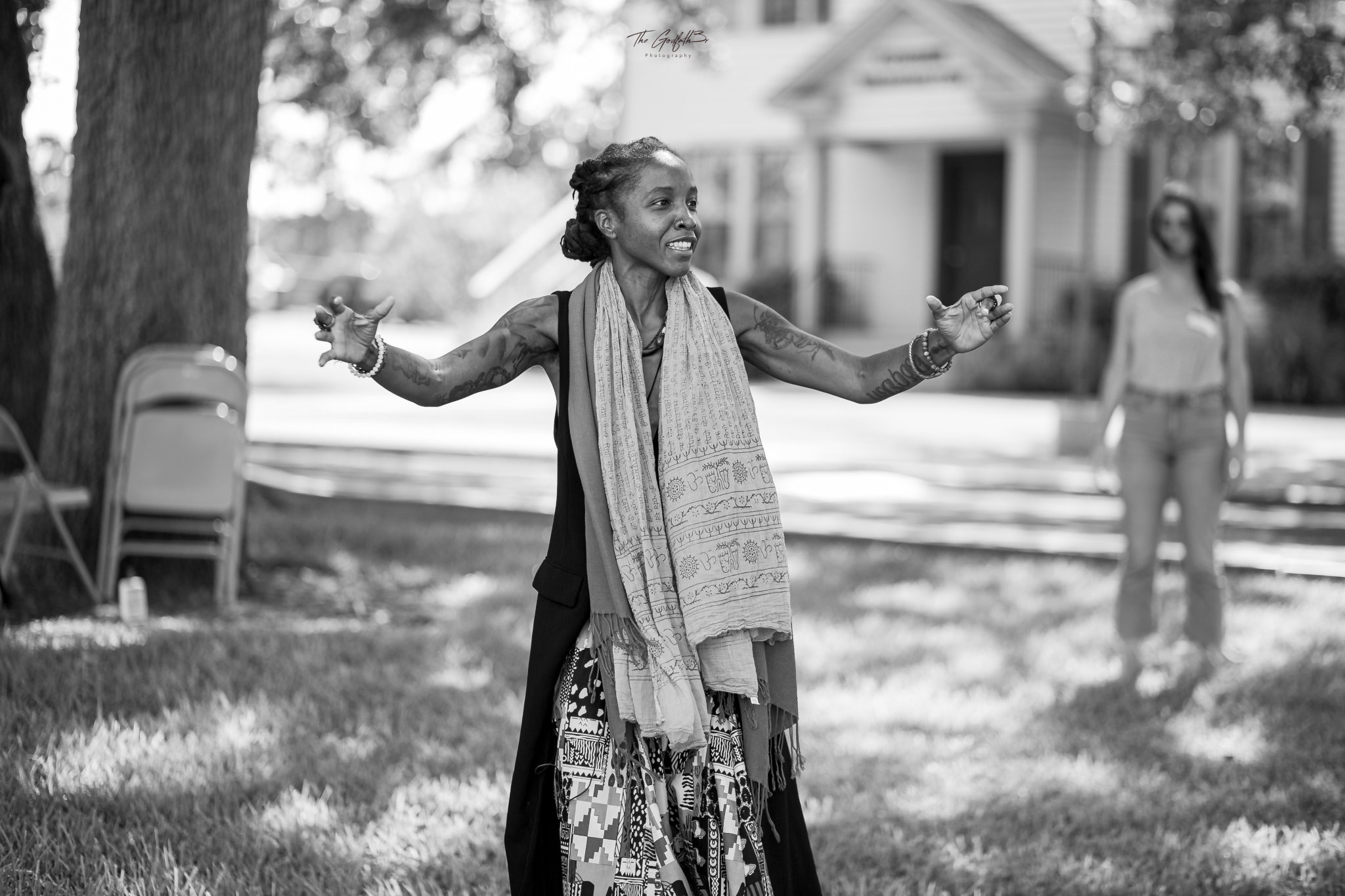
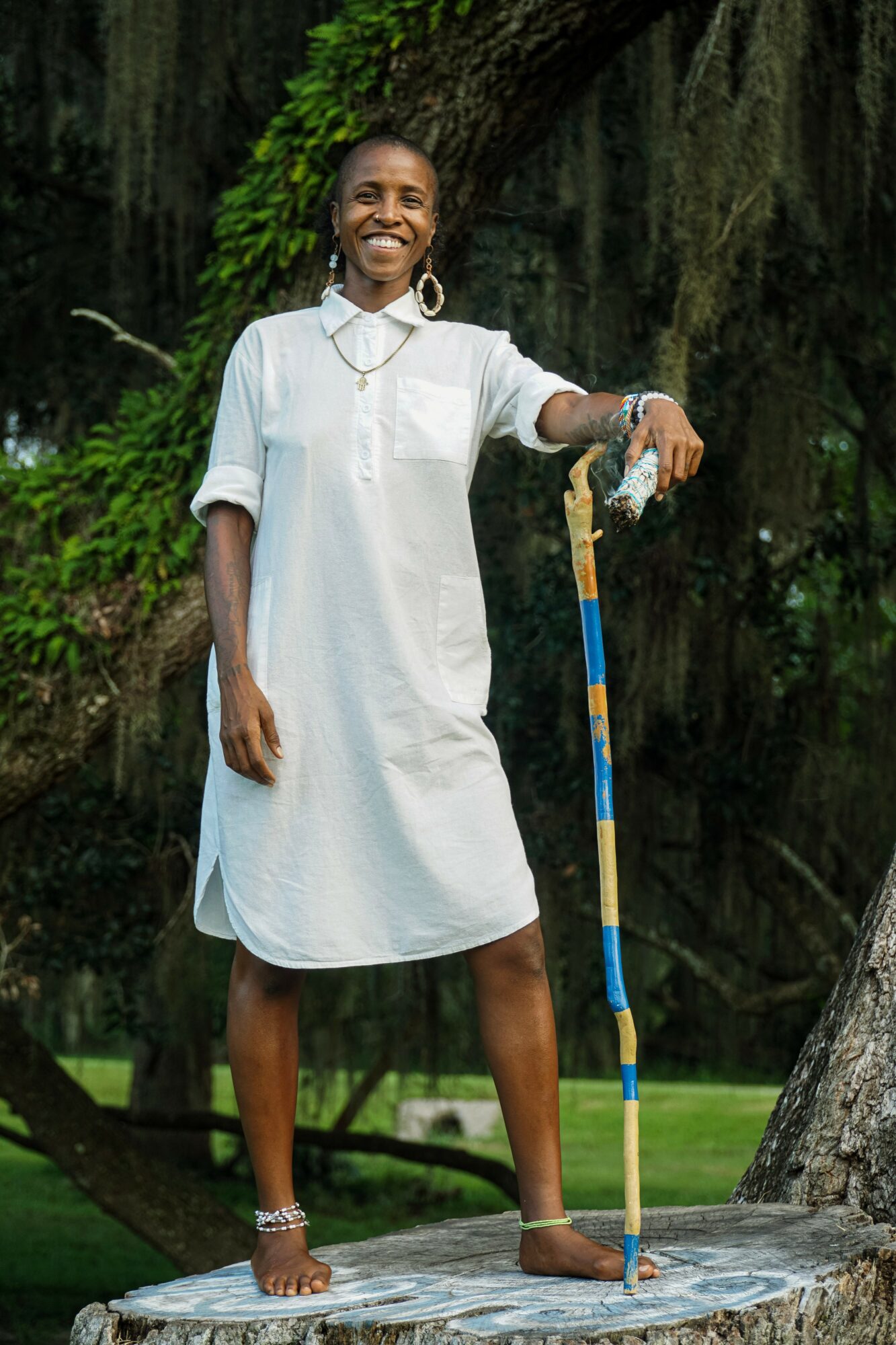
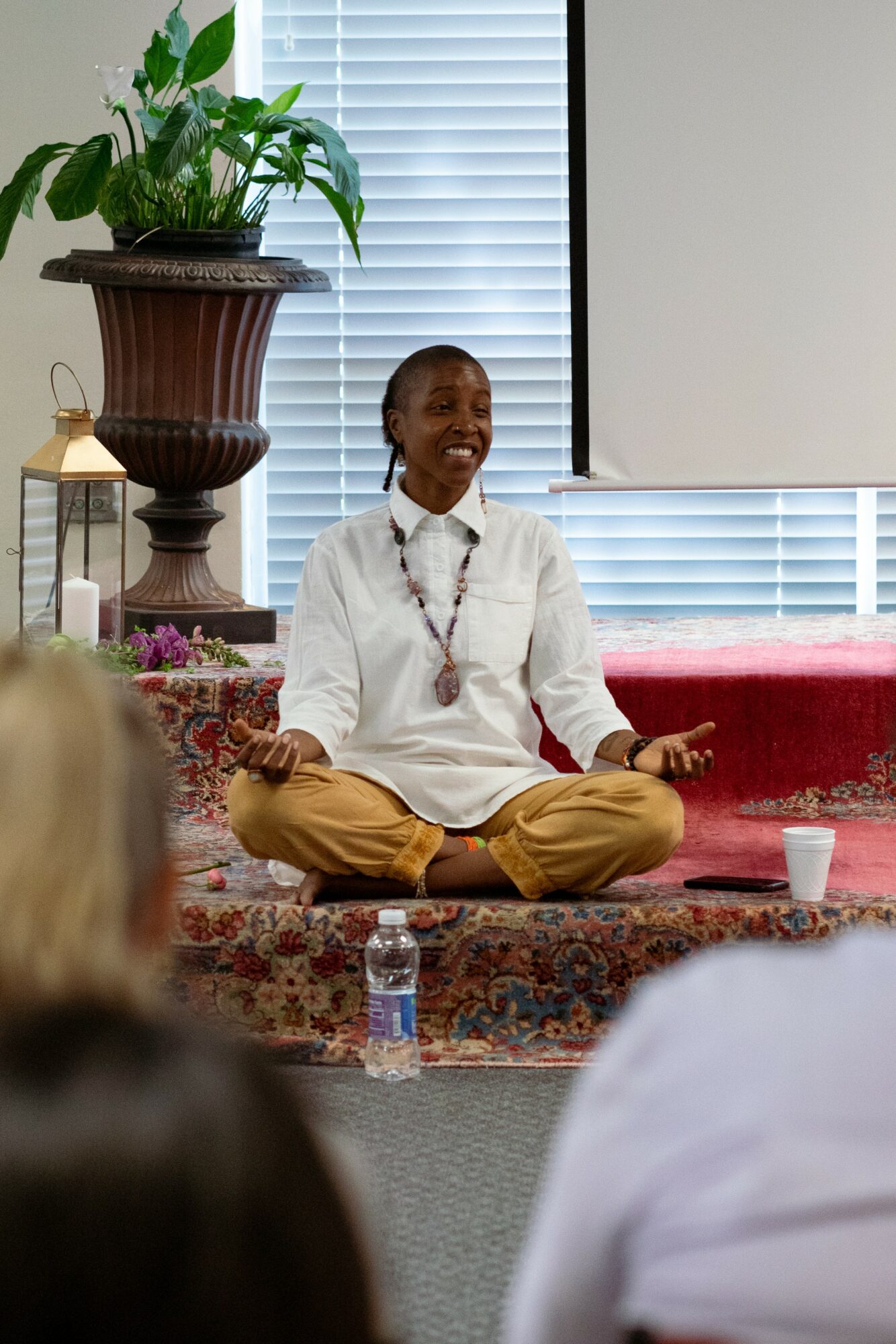
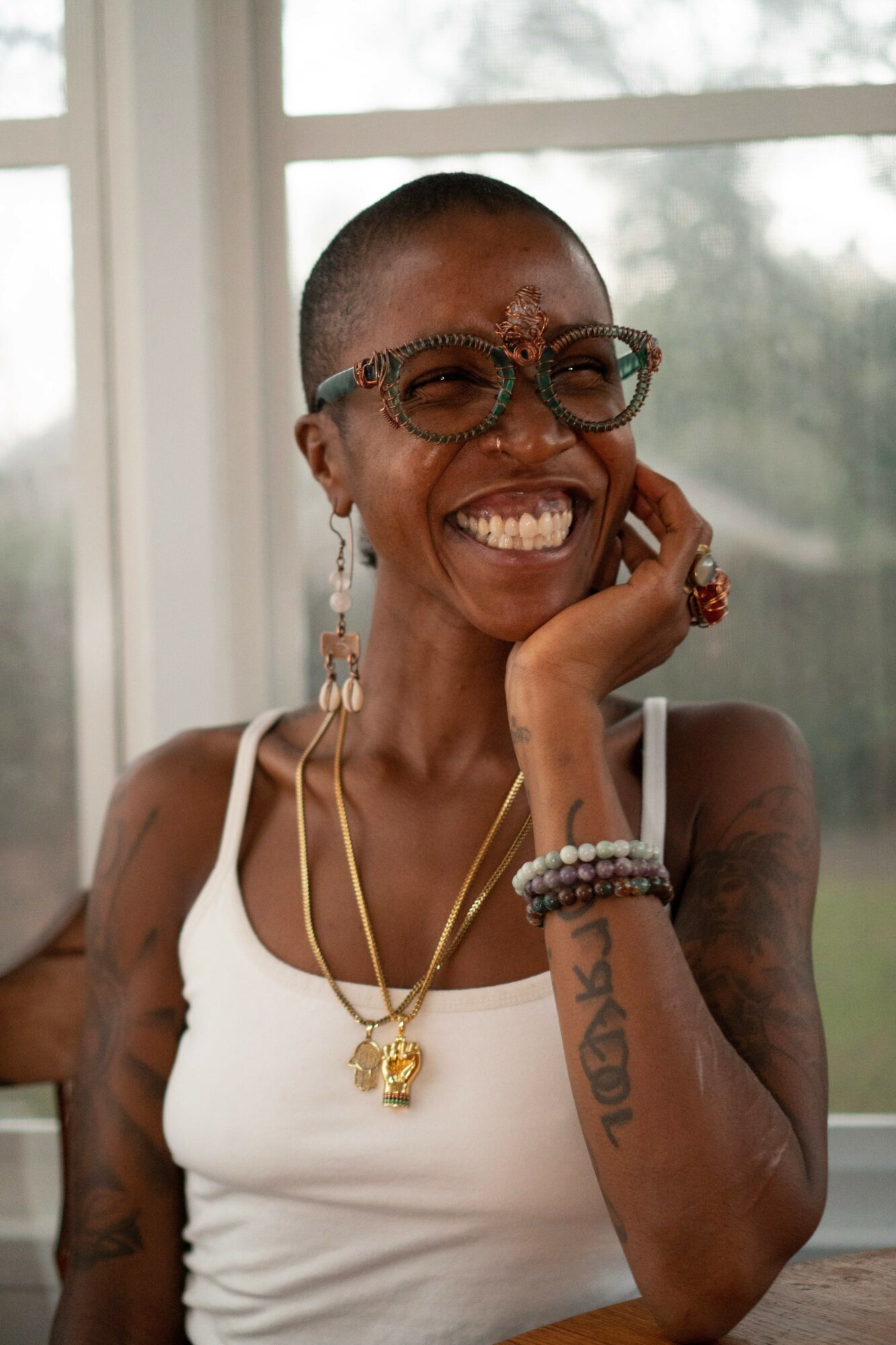
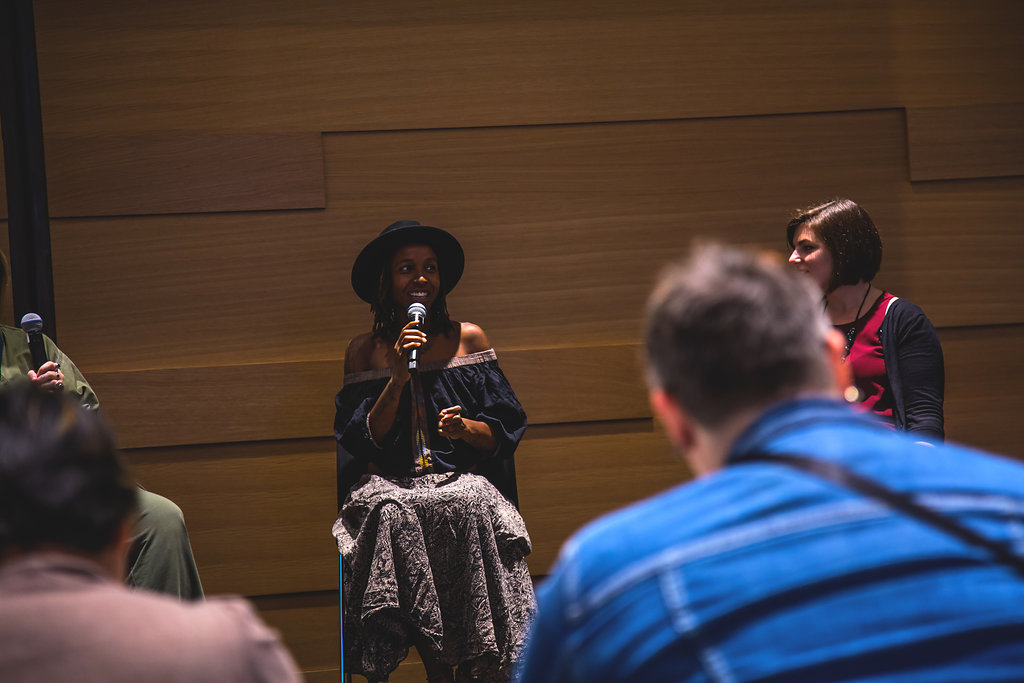
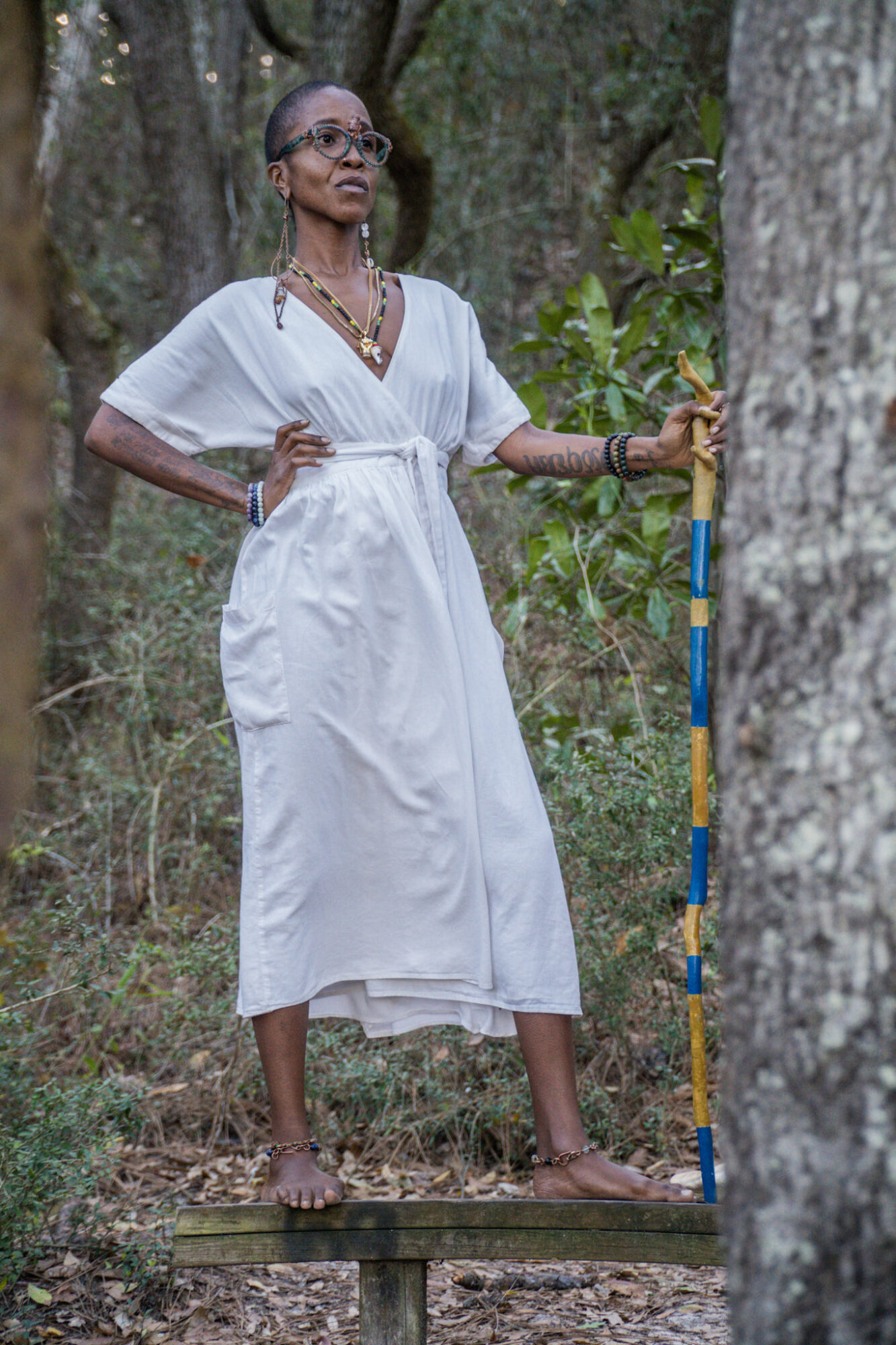
Image Credits
Jeremy A. Teel and Leandra













